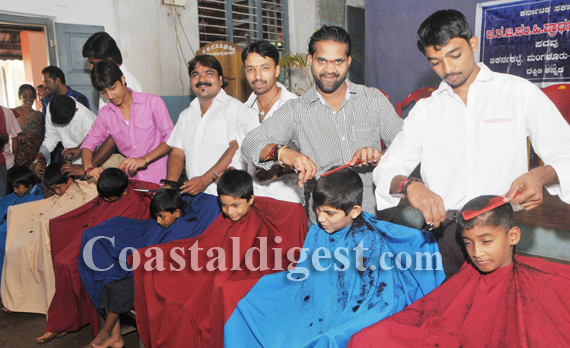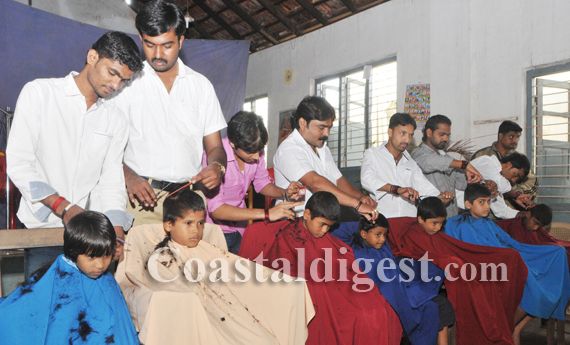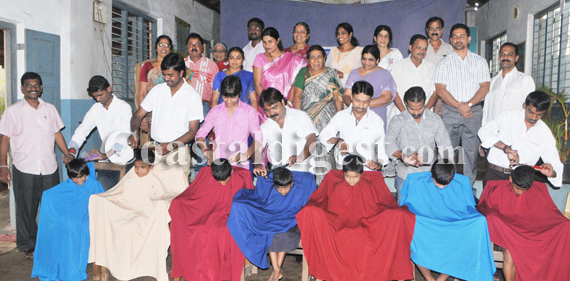Bengaluru, May 19: Containment zones in Karnataka will be much smaller in size under the latest lockdown norms. However, rules and loopholes will be tightened and action against violators will be stringent in order to check the spread of the disease.
Revised guidelines issued by the Centre to the state, reveal containment zones are delineated based on mapping of cases and contacts. Intensive action will be carried out in these areas with the aim of breaking the chain of transmission. Therefore, the area of a containment zone should be appropriately defined by the district administration/local urban bodies with technical inputs at local level.
The health department is considering shrinking the size of containment zones from the existing 100 metres to open up more space for economic activities. Medical education minister K Sudhakar, also a member of the Covid taskforce, said additional chief secretary (health department) Javed Akthar will issue a new definition of a containment zone after the Covid-19 taskforce holds its next meeting.
“We are planning to further shrink it and restrict containment zones to an apartment complex, independent house or even a lane where the Covid-19 patient resides,” Sudhakar said. He went on to say bigger containment zones will impede businesses and normal activities in the vicinity, something which the government wants to avoid.
The minister said Karnataka will also do away with colour-coding districts. “With restrictions being relaxed for almost all activities, it does not make sense to pursue with colour codes. It is either containment zone or outside containment zone,” he said.
In rural areas, the minister said containment zones will be identified by the taluk heads. Government sources say it is difficult to restrict activities to certain areas or smaller location in rural areas as farmers and people will have to travel to the outskirts of their villages for their livelihood.
An official said, a containment operation (large outbreak or cluster) is deemed successful when no case is reported in 28 days from the containment zone.








Comments
Simply desire to say your article is as surprising.
The clarity in your post is simply great and
i can assume you're an expert on this subject.
Well with your permission allow me to grab your feed to keep updated with
forthcoming post. Thanks a million and please
continue the enjoyable work.
Feel free to surf to my homepage psychics: http://Giadinhnazarethvietnam.com/video/profile.php?u=FCKBell727
This is my first time visit at here and i am actually impressed to read everthing at single place.
My website: Psychics feedback: http://05.gd/psychic_ratings_949884
Awesome post.
Also visit my website ... http://jkt.Dom.web.id/index.php?a=member&m=1168477: http://jkt.Dom.web.id/index.php?a=member&m=1168477
I was curious if you ever considered changing the structure of your
website? Its very well written; I love what youve got to say.
But maybe you could a little more in the way of content so people could connect
with it better. Youve got an awful lot of text for only having 1 or 2
images. Maybe you could space it out better?
my web-site - psychics: http://Www.isuruvimana.net/profile.php?u=YaniraMarti
I am extremely impressed with your writing skills as well as with the layout on your
weblog. Is this a paid theme or did you customize it yourself?
Either way keep up the excellent quality writing, it
is rare to see a great blog like this one these days.
my blog; psychic ratings: http://www.Partypillsforum.com/index.php?a=member&m=2808217
Hi there, yup this paragraph is truly good and I have learned
lot of things from it about blogging. thanks.
Look at my homepage :: psychic
readings: http://partypillsforum.com/index.php?a=member&m=2792996
Nice post. I learn something new and challenging on blogs I stumbleupon on a daily basis.
It's always interesting to read content from other writers and
practice something from other sites.
Review my blog post ... http://www.Foundationkey.com/Index.php?do=/blog/220852/what-will-i-get-…: http://www.Foundationkey.com/index.php?do=/blog/220852/what-will-i-get-…
Howdy just wanted to give you a brief heads up and let you know a few of the images
aren't loading correctly. I'm not sure why but I think its a
linking issue. I've tried it in two different internet browsers
and both show the same results.
Review my blog ... Psychic Reviews: http://chicagorehab.net/userinfo.php?uid=2839729
I seriously love your blog.. Great colors & theme. Did you develop this site yourself?
Please reply back as I'm trying to create my very own website
and would like to learn where you got this from or just
what the theme is named. Many thanks!
Feel free to surf to my site :: Psychics Feedback: http://Shorl.com/drirustavestyna
Hi there friends, how is all, and what you want to say concerning this piece of writing, in my view its in fact remarkable for me.
my web page; Psychics Directory: http://Chicagorehab.net/userinfo.php?uid=2906161
Add new comment